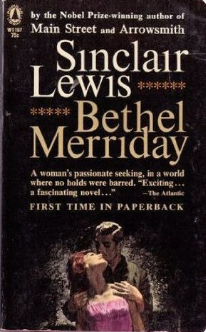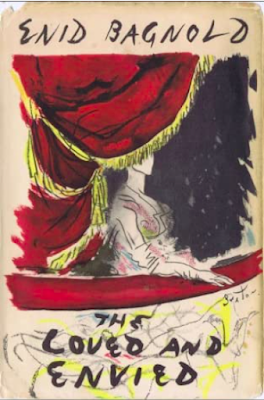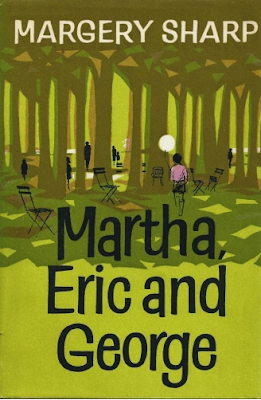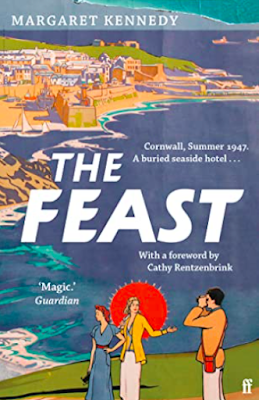Books and Chocolate
“You can never get a cup of tea large enough or a book long enough to suit me.” ― C.S. Lewis
Owned and Unread Project
Monday, January 23, 2023
Back To the Classics Challenge 2022: The Winner!
Sunday, December 18, 2022
Back to the Classics 2022: Final Wrap-Up Posts
- If you've completed six categories and you get one entry.
- Complete nine categories, and you get two entries.
- Complete all twelve categories, and your name is entered into the drawing three times!
Sunday, September 4, 2022
Mr. Skeffington by Elizabeth von Arnim
 |
| Lots of Italian reprints of von Arnim's novels. Nice cover but it really doesn't reflect the mood of the book. |
 |
| Nice cover on this French edition |
So, not among my favorites of her novels, but I still have three left on the shelves unread -- The Caravaners, Vera, and The Jasmine Farm. I'm really hoping I like those better.
I'm counting this as my Classic by a Woman Author for the Back to the Classics Challenge.
Sunday, August 28, 2022
Bethel Merriday by Sinclair Lewis (with Bonus Bad Book Covers)
 |
| Original 1940 dust jacket cover |
Like all artists -- all painters, all musicians, all poets, even some of those plodding recorders, the novelists -- actors are glorious children, with a child's unwearied delight in the same story over again, and the child's ability to make dragons grow in a suburban garden, but with an adult magic of crystallizing the daydreams into enduring life.
In the summer of 2019 I took a little jaunt to Ellicott City, Maryland, officially known as The Cutest Little Town in the USA. It's really just a long winding street up a steep hill, lined on either side with quaint shops and restaurants, the perfect place to spend the day puttering about. At the bottom of the hill is a multi-level antique mall, which is a great place to look for obscure books. Needless to say I found several that intrigued me, one of which was Bethel Merriday by Sinclair Lewis. Famous for his satires Elmer Gantry, Babbitt, and Main Street, he actually published more than 30 novels. I'd never heard of Bethel Merriday and was intrigued. A quick online search described it as "the story of a young girl on the stage," and since I've become really interested in the theater the past few years I thought I'd give it a go. Plus it was a first American edition! (but sadly no dust jacket -- I've found an image of the original, plus there have been some hideously bad pulp covers on paperbacks, included for your amusement).
 |
| This 1960 paperback cover makes it look really steamy. It is not. |
So. It starts with Bethel as a small child growing up in Connecticut, realizing that she loves to play-act. Eventually she goes off to a women's college and snags a few parts, and despite her family and friends trying to convince her to settle down and marry her home-town honey, she persuades her parents to do a sort of summer theater internship, where (for a fee) she gets a few small parts and does a lot of behind the scenes work in a small theater in a disused former church. Bethel then decides to try her luck on Broadway, and after several months of struggling, discovers that someone from the summer stock company is mounting a new touring production of Romeo and Juliet, with a shocking modern interpretation -- well, shocking in that the actors are all wearing modern clothes. She manages to finagle herself a job as a secretary to the producer/lead actor, the handsome and wealthy Andy Deacon, who is spending all his money on this endeavor. Bethel is also the understudy for Mrs. Boyle, a semi-famous actress who has accepted the part of Juliet for an astronomical sum.
The whole crew go on the road, bringing the Bard to small-town America. By now it's 1938 and the threat of war is looming, but there's very little mention of "the situation in Europe." It's really about the day-to-day struggles of this low-budget touring company and their attempts to at least break even, and the relationships that develop among the players. As the lead character, naturally young Bethel has her admirers -- I counted at least six proposals of marriage Bethel receives from various men in the book, and it might have been more.
 |
| A very pulpy 1962 paperback edition, also laughably bad. |
I enjoyed reading about all the backstage drama and trouble that the company faced, which probably wouldn't be much different today, except they'd probably be in a giant motor coach instead of Pullman cars. (I love traveling by train and the idea of a sleeper car sounds delightful -- they still exist in the USA but they're quite expensive and train food isn't very good any more so I don't know if I'll ever try it). I liked Bethel and the other characters but the story is lacking the real satire that I expected after reading Main Street. I really didn't get a lot of character development, especially with Bethel, who is really a bit too perfect. I've seen other readers complain that the book mostly ignores the buildup of WWII -- the book was first published in 1940 and it is a bit odd, though Lewis had addressed the rise of facism in his 1935 work, It Can't Happen Here. Maybe he really wanted a break from the war and needed to write something escapist? I don't know enough about Lewis to speculate.
There are three classes in the audience in a city theater: those who can afford to go -- of whom some really like the play; those who want it thought they can afford to go -- they are too engaged in hoping they look like regular and expert theatergoers to have much attention left for the play itself; and the students up in the gallery, who love the play savagely or hate it volubly.
 |
| A Spanish edition from 1946. This one is actually quite pretty. |
This is my eighth book for the TBR Pile Challenge.
Tuesday, July 26, 2022
Paris in July 2022: The Loved and Envied by Enid Bagnold
 |
| The Virago reprint. The cover image is the portrait of Lady Diana Cooper by J. J. Shannon. |
The story begins the opening night of Rudi's latest play, with most of the characters in attendance, and what follows over the next few weeks. It's another book in which not much happens, yet many things happen, largely character driven. Most of the characters are aging aristocrats and much of the story concerns aging and mortality, particularly the question of aging beauty. Lady Ruby is 53 and still all the men hover around her, even those young enough to be her sons.
 |
| The original 1951 cover |
The story jumps around quite a bit at the beginning giving back story to all the characters surrounding Lady Ruby and their relationships to her. The first half was almost like a set of short stories about them before they actually got to the main character. Honestly, I don't even remember much about her except the many descriptions of how beautiful she is and was, and that got a little tiresome. It's well written and I liked a lot of the characters, but I found everyone besides Lady Ruby to be far more interesting than she was and would have loved to read more about them and less about her. I particularly liked the back story of Cora Holbein and would happily have read an entire novel about her.
Wednesday, July 20, 2022
Paris In July: Renoir, My Father by Jean Renoir
It's quite an interesting memoir about Renoir's life and how became and artist and met up with his fellow Impressionists. He's one of the most prolific of the group, with at least 4000 paintings to his record (and the book includes stories about other paintings that were lost or stolen which just made me aghast. Some were literally used to patch up holes in a leaky roof).
Tuesday, July 5, 2022
Paris in July: The Martha series by Margery Sharp
I thought I'd start Paris in July with a short, fun book. Margery Sharp's Martha in Paris fit the bill perfectly -- only 166 pages and it was one more I could cross off my owned-and-unread pile. However, when I bought this at Strand Books several years ago I didn't realize it was second in a series. Naturally I would need to read them in order, so I had to track down the first book and buy that one too, though it's set in London, not Paris.
 |
| I love this pulp novel cover - so dramatic! |
 |
| This cover is just SO WRONG it's laughable. Martha wouldn't be caught dead in stockings and black pumps. It's so bad I had to include it. |
 |
| I love this retro cover. |
Saturday, July 2, 2022
Paris in July 2022
- Claudine Married by Colette. The second novella in the Claudine omnibus; I'm sure I won't finish the entire series this month.
- The Mystery of Henri Pick by David Foenkinos. Found this whilst browsing in the library and it looked interesting (and short!).
- Maman, What Are We Called Now? by Jacqueline Mesnil-Amar.
- Renoir, My Father by Jean Renoir
- A Fine of Two Hundred Francs by Elsa Triolet
- The Bright Side of Life by Emile Zola
Books originally written in English but set in France:
- The Loved and Envied by Enid Bagnold
- Greengage Summer by Rumer Godden
- Martha in Paris by Margery Sharp
- The Golden Lion of Granpere by Anthony Trollope
- Summer Will Show by Sylvia Townsend Warner
Tuesday, June 28, 2022
The Feast by Margaret Kennedy
 |
| Cover of a 1969 reprint. This one is pretty much perfect. |
 |
| The copy of my edition. Nice, but I don't think it really reflects the setting of the book. |
The book then jumps back seven days and describes the final week of the resort and its inhabitants. Set in 1947, the Siddal family are struggling to make ends meet in their ancestral home on the Cornish coast and have converted it to a boarding house, not so much a hotel. Mrs. Siddal is trying to make a go of it but her husband has mentally checked out and doesn't lift a finger, hiding in a room under the stairs. Her three grown sons help but are ready to leave the nest. There are also some servants including Miss Ellis, a snobbish, gossipy housekeeper and Nancibel, the loyal housemaid. Then there are the guests, including two families, the wealthy Gifford family with four children; the Coves, with three; an unhappy couple, the Paleys, who are grieving for their dead daughter; plus an obnoxious clergyman, his put-upon daughter Evangeline; and a late arrival, a bestselling author and her chauffeur. It's almost like an Agatha Christie novel, but instead of a murder, it's a natural disaster, and the reader has to work out who will live and who will die.
 |
| The original 1949 cover. Good, but I like the 1969 cover better. |
 |
| A French edition from 1956 |
 |
| A new French reprint. Good, but a little too cheerful for what's inside the book. |
This is an absolutely brilliant book and I know it will be one of my top reads of the summer, if not the entire year. I've only read one other book by Margaret Kennedy, Troy Chimneys, which is also good but very different from this one. Several of her other books are still in print including her other most famous book, The Constant Nymph, which I also own and will definitely move up on the to-read pile.
I'm counting this as my Classic Set In A Place You'd Like To Visit for the Back to the Classics Challenge. It's also the first read for my Big Book Summer Reading Challenge.
Tuesday, June 14, 2022
A Pin To See the Peepshow by F. Tennyson Jesse
In the history of the world it is only we -- we who are young now -- who are really going to know about life.
I bought this Virago Modern Classic more than five years ago, after Simon and Rachel discussed it in the wonderful podcast Tea or Books? I was going to say "I can't believe I've waited so long to read this" but who am I kidding? I have more than 150 unread books and the pile never seems to grow any smaller. But I recently joined a Goodreads book group that discusses middlebrow books and it was their June pick! (The group has also caused me to buy more books, so I don't know if it's really a win. I'm really enjoying the books though).
It took me awhile to get started, but I zoomed through this book in only three days -- pretty good since it's just over 400 pages. It's one of several books inspired by the Thompson/Bywaters murder trial in the 1920s. I knew nothing about the case other than what I'd heard on the podcast several years ago, and I remembered none of it -- I couldn't even recall who the murder victim was though I had my suspicions.
I really liked this book but I was surprised at how long it took to get to the actual crime, more than 300 pages. It's really a character study of a young lower-class woman growing up in the Edwardian/WWI period. The protagonist is renamed Julia Almond and the story begins when she's off to school, aged about 16. As one of the upper-level pupils, she's tasked one day with briefly overseeing some younger students, one of whom has a tiny peepshow, a sort of mini-diorama you peer into through a tiny hole. This peepshow acts as a metaphor for Julia's life -- over the next ten years she's observing what she wants and will never have, due to circumstances beyond her control.
 |
| I think this is the original dustjacket. Nice illustration but it doesn't even give a hint about the story. |
Julia soon leaves school and studies fashion drawing and French, which leads her to a minor job at a fashion house in London. She's a quick study is working her way up in the business when the Great War begins. People are spending money like there's no tomorrow (and for some, there won't be) and she makes fashionable friends and hopes for a better, more exciting life.
However, her father dies suddenly leaving Julia and her mother without enough to live on, and they are forced to combine households with her uncle and his family, including a younger cousin Elsa. It's tight quarters and they're obliged to share a room, which overwhelms Julia, and she makes the rash decision to marry an older friend of her father's, Herbert Starling, just to get out of the house. Having had a taste of independence, Julia isn't satisfied as the compliant little wife by the hearth that Herbert has envisioned, and the marriage is doomed from the start. Julia isn't a particularly likable character, but I absolutely sympathized with her frustration and lack of choices for women in the time period, particularly middle-class women who were judged by a much higher standard than lower or upper-class women of that era. A Pin To See the Peepshow was published in 1934, about twelve years after the murder, and I wonder if it was quite shocking for its time as it covers some topics that are still pretty divisive today.
This book is very character-driven and Jesse takes a long time on developing Julia. Most of the other characters are also well drawn. The murder portion of the book is really only the last 100 pages or so and did feel a bit rushed in parts. The author does spend a good bit of time on Julia's thoughts during and after her trial, and thankfully leaves out a scene at the end which is probably best left to the imagination. My Virago edition also includes an excellent epilogue by the writer who adapted it as a 1973 mini series. (There's also a new British Library Women Writers edition which includes an introduction by Simon!) I was hoping someone had uploaded it to YouTube or other streaming service but I haven't been able to find it. It starred Francesca Annis who I can perfectly imagine as Julia.
This is book #7 for the TBR Pile Challenge.














.jpg)
